Co-translators Alex Karsavin and Anne O. Fisher on their project, Ilya Danishevsky’s 2018 novel Mannelig in Chains, which seeks to show rather than tell what queer subjectivity feels like, from the inside out. Their translation has been seed-funded by the ERC Horizon 2020 Fund via the RusTrans project. Read an extract from their translation here.
Having weathered a history of persecution and repression, Russia’s LGBT writers of the 1990s and early 2000s sought to bring homosexual relations out into the open. If the aughts were defined by a literary corpus that was formally conventional, often confessional, and concerned with liberal visibility politics, the last decade has seen the emergence of a more formally diverse, radical literature that posits itself as ‘kvir’ rather than LGBT.
The first wave of such writers, including Oksana Vasyakina, Nastia Denisova, and Lida Yusupova, foregrounded a poetics of queer embodiment firmly anchored in liberatory feminist politics. A good example would be Galina Rymbu’s poem ‘My Vagina’ (2020), written in response to the case of Yulia Tsvetkova, an activist threatened with six years in prison for ‘disseminating pornography’ in the form of body-positive art.
The second, and ongoing, wave of writing has proven more speculative, and thus more difficult to define. This newest generation seeks to convey alternative queer modalities formally rather than thematically. They create queer literature of a deconstructionist bent, working to disrupt dominant modes of signification, often dispensing with grammatical gender and linear diegesis altogether in favor of fragmentation, liminality, syntactic defamiliarization, and simultaneity. The cumulative effect of these formal strategies is to present a counter-hegemonic subject, whose fluidity precludes co-opting into any monolithic whole. Writers of this wave include Lolita Agamalova, Georgi Martyrosan, Andrei Filatov, Inna Krasnoper, and many others.
Of course the lines between the two waves aren’t fixed. (See Filatov’s essay ‘Kvir Buttons’ [in Russian] for an in-depth breakdown of the two waves, and the gradations between them. It is his theorization of the scene that we, albeit loosely, have adapted here.) For example, scene leader Galina Rymbu, whose early work pastiched queer poetics with leftist sloganeering, is now experimenting with autotheory, while integrating the tenets of new materialism and posthumanism into her work. In similar fashion, Ilya Danishevsky exists somewhere between these waves. His protagonist’s sexuality and politics are recognizable; however, little else in the 2018 novel Mannelig in Chains lends itself to such a direct interpretation.
We read the fluid, often alienating, experience of being interpolated as queer in Russia as encoded in the novel’s language. Mannelig’s protagonist is a gay youth adrift in the detritus of Russia of the late 90s-early aughts. Time is not linear: it surges, eddies, and finally congeals into memory. Surfacing out of the diegetic haze, characters flicker in and out of focus. It’s not only the borders of identity that are porous, but the borders of chapters as well: motifs from one section seep into the next, constantly pulling the reader back and forth.
Russophone critics were drawn to these qualities, with most finding them compelling and generative; Elena Kostyleva, for example, called the text a touchstone of a new ‘dirty modernism’, in which ‘all structures are fragile, all identifications fallen’. But another way of understanding these qualities is that they identify Mannelig as part of what scholars, most recently Jose Vergara, have called the Joycean tradition in Russophone literature. Mannelig is the first participant in this tradition, however, to deploy the Joycean aesthetic as means of exploring and manifesting a queer poetics. The Homeric parallels, with chapters named after the books of the Odyssey (as in Joyce’s Ulysses), are just the most obvious signs of the link. The text’s temporal discontinuity and self referentiality create a circular flow to events, much akin to Finnegan’s Wake—and in fact Danishevsky told us that he was thinking of the transformation of the washerwomen in Joyce’s novel when he mentioned a ‘tearful stone’ (associated here with the river Jordan, not the river Liffey) in Chapter Four of Mannelig, ‘Back-to-Back Obligations (Tempestad Grande, Amigo) // The Laestrygonians’. Punctuation-free stream of consciousness narration pervades Danishevsky’s text, which teems with allusions to Irish mythology, an overbearing estranged mother, and Catholicism. Not to mention the fact that for Bloomsday 2020, Danishevsky organized a marathon reading of Ulysses (in Russian) through the Voznesensky Center as a fundraiser for Russian doctors. An adequate elaboration of Mannelig’s Joyceanism must remain outside the scope of this brief treatment; we hope simply to demonstrate that Mannelig bespeaks a queering not only of 90s Moscow, but also of genre, subverting the formalist wheelhouse to show, rather than tell, what queer subjectivity feels like, from the inside out.
Early in the translation process, we had an email conversation with Danishevsky about translating промоина (gully, rain channel, hole, cavity), a recurring word in Chapter Eight, ‘Remains of Nebuchadnezzar, Part 1.’ His explanation helped us better understand the chapter, and the book as a whole:
AK and AF: Should this be translated according to sound or according to meaning?
ID: According to how it sounds, to the feeling you get from the word. It’s exactly this unsuitability (непригодностью) for living, this escapism, this being-parallel-to-existence (which I feel in all academic work) […] The whole text there’s written in ‘unsuitable’ language (‘непригодным’ языком), maximally alienated from yourself…
In one way Danishevsky’s explanation created another challenge, since there are so many shades of meaning for непригодность, all apposite to the text: непригодность means inadequacy, insufficiency, uselessness, and incompetence, while something that is непригодный (unsuitable) is something that should be scrapped or discarded. But the primary effect of his explanation was to confirm our perception of the text’s Joycean, self-referential, self-interrupting language, allowing us to work with these discards and false starts and dead ends as the basis of the work, not as flaws in it. These непригодности (insufficiencies), as well as the sense of maximal alienation (from oneself, from the body politic), emerge in places like the following excerpt from ‘Nebuchadnezzar’, where the narrator is carrying an empty glass jar to be used in a neopagan rite meant to free him from his feelings for an acquaintance in a Moscow suburb, a rite suggested by the female friend he texts:
That is to say, you do not write her that you’ve brought a glass jar to the town of the man you love, due to the fact that a kind of nimbus of meanings is making the expression ‘the man I love’ too overloaded; due to the fact that it’s not all as simple as that; is it ‘man’ as in his body, or ‘man’ as in the political construct, and so forth; and also, what is this ‘I,’ and what is this ‘love,’ and does that word say more about the referent than about you; and so forth; all of this is unclear, which is why you can’t (won’t) say things like that. You will use more evasive strategies, even for yourself. (from Mannelig in Chains)
This passage owes as much to deconstructionism as it does to Joyce, manifesting Danishevsky’s characteristic blending of disparate critical and literary frameworks. Another echo of Joyce occurs in chapter four, ‘Back-to-Back Obligations (Tempestad Grande, Amigo) // The Laestrygonians,’ which ends in a narrative fragment inviting us to recall the parallax on which Bloom fixates in ‘The Laestrygonians’—although it’s true that Danishevsky’s personae tend to suffer from too much understanding, rather than too little:
thinking of those days, of the fact that they’ve ended, I think about how everything that comes after them will also end, and how it’s not really so far off, I just need to hold on for as long as it takes and wherever it takes me and how then I’ll no longer need to try. how I’ll be able to simply observe the way it seeps through all the surfaces I look at, leaving me with less than what’s left to each of them—and everything will someday just disappear—and there won’t be any more of this, or of what I remember when I examine it. (from Mannelig in Chains)
In translating Mannelig in Chains, we are working toward another time that, we hope, is also ‘not really so far off’: the time when we can introduce readers to Danishevsky’s Moscow, a city every bit as disconcerting, and as strangely illuminated, as Joyce’s Dublin. Read an extract from Chapter 1 of Mannelig in Chains, ‘Shadows over Mutabor’, in our translation here.
Written by Alex Karsavin and Anne O. Fisher (2021)
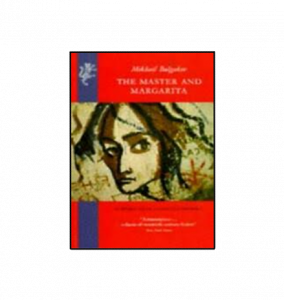 And so, over two weekends in November (05-08 and 14-15) we participated in the
And so, over two weekends in November (05-08 and 14-15) we participated in the 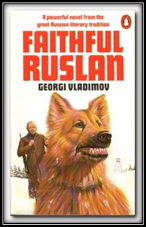 Her microhistory spotlighted some of Glenny’s translatorial dispositions (as gleaned
Her microhistory spotlighted some of Glenny’s translatorial dispositions (as gleaned 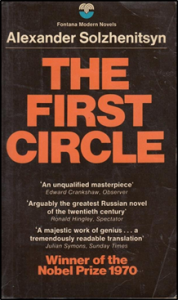 from a range of primary material: letters, reviews, articles, notebooks spanning decades) and emphasised some translators’ natural inclinations towards the role of ‘translator-humanitarian’, which Glenny assumed later in his career by advocating for struggling living authors (Vladimov, for example, in the months preceding his ultimate defection), and for deceased authors denied full literary recognition (Bulgakov).
from a range of primary material: letters, reviews, articles, notebooks spanning decades) and emphasised some translators’ natural inclinations towards the role of ‘translator-humanitarian’, which Glenny assumed later in his career by advocating for struggling living authors (Vladimov, for example, in the months preceding his ultimate defection), and for deceased authors denied full literary recognition (Bulgakov).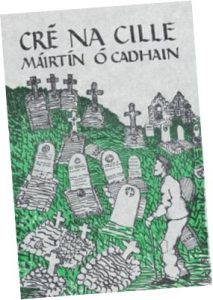
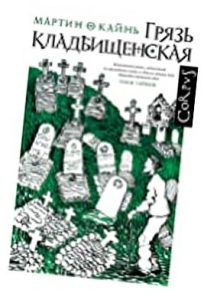 At midday British time on Saturday 7th (early morning for some in the US), RusTrans Principal Investigator Muireann Maguire participated in and chaired her panel, ‘Literary Translation from Russian in a Global Context’. This panel united three papers: Muireann’s ‘Houses of the Dead: Dostoevsky in Irish Literature’, Elizabeth Geballe’s ‘Scandalous Homage: E.-M. de Vogüé’s ‘Translation’ of Dostoevsky’, and Lana Soglasnova’s ‘One-poem Multilingual Translations: A Multidisciplinary Perspective’. Acting as co-discussant (with Dr Jinyi Chu), Cathy used her slot to draw parallels from all three papers with Pascale Casanova’s titular concept of the World Republic of Letters. Casanova’s research tracks the global ebb and flow of national literatures. Muireann’s, Elizabeth’s, and Lana’s papers each spoke to some aspect – or incarnation – of the emergence and disappearance of national literatures in translation. Death, an overt literary theme in both Elizabeth’s and Muireann’s papers, also served as a metaphor for translation. Elizabeth described how the French scholar Eugène-Melchior de Vogüé demanded a literary re-naissance for moribund French realism specifically through translations of Russian literature. Muireann spoke about Irish novelist’s Máirtín O Cadhain’s homage to Dostoevsky in his 1949 masterpiece Graveyard Clay, which owed its genesis, as she argued, to The House of the Dead, a text very much alive in translation. And yet, unlike its transnational exemplar, O Cadhain’s novel itself has risked literary death because it is written in a localized (and now almost extinct) dialect of Irish, and was not translated into any
At midday British time on Saturday 7th (early morning for some in the US), RusTrans Principal Investigator Muireann Maguire participated in and chaired her panel, ‘Literary Translation from Russian in a Global Context’. This panel united three papers: Muireann’s ‘Houses of the Dead: Dostoevsky in Irish Literature’, Elizabeth Geballe’s ‘Scandalous Homage: E.-M. de Vogüé’s ‘Translation’ of Dostoevsky’, and Lana Soglasnova’s ‘One-poem Multilingual Translations: A Multidisciplinary Perspective’. Acting as co-discussant (with Dr Jinyi Chu), Cathy used her slot to draw parallels from all three papers with Pascale Casanova’s titular concept of the World Republic of Letters. Casanova’s research tracks the global ebb and flow of national literatures. Muireann’s, Elizabeth’s, and Lana’s papers each spoke to some aspect – or incarnation – of the emergence and disappearance of national literatures in translation. Death, an overt literary theme in both Elizabeth’s and Muireann’s papers, also served as a metaphor for translation. Elizabeth described how the French scholar Eugène-Melchior de Vogüé demanded a literary re-naissance for moribund French realism specifically through translations of Russian literature. Muireann spoke about Irish novelist’s Máirtín O Cadhain’s homage to Dostoevsky in his 1949 masterpiece Graveyard Clay, which owed its genesis, as she argued, to The House of the Dead, a text very much alive in translation. And yet, unlike its transnational exemplar, O Cadhain’s novel itself has risked literary death because it is written in a localized (and now almost extinct) dialect of Irish, and was not translated into any 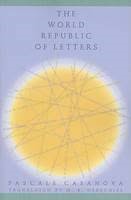 international languages until the twenty-first century. The common theme binding all the anthologies explored in Lana’s paper is the resuscitation of dead poets, short-story writers and minority ethnic languages, projecting them either internally or externally into dozens of world languages as an act of outward-looking advertisement. The rationale behind such large-scale projects recalls Johann Herder’s 18th century claim, cited by Casanova, that ‘each epoch and nation possesses its own special character’ (2007, p. 76). One way to challenge unequal distribution of power in the emerging literary world is by creating a repository of national literary wealth which springs from ‘a country’s entire cultural and historical development’ (ibid.). It seems this might be the key skopos behind these anthologies, which we were told require significant investment, but also have the capacity to act as a vehicle for healing, by allowing the State to atone for historical instances of national domination of peoples, literatures, and languages.
international languages until the twenty-first century. The common theme binding all the anthologies explored in Lana’s paper is the resuscitation of dead poets, short-story writers and minority ethnic languages, projecting them either internally or externally into dozens of world languages as an act of outward-looking advertisement. The rationale behind such large-scale projects recalls Johann Herder’s 18th century claim, cited by Casanova, that ‘each epoch and nation possesses its own special character’ (2007, p. 76). One way to challenge unequal distribution of power in the emerging literary world is by creating a repository of national literary wealth which springs from ‘a country’s entire cultural and historical development’ (ibid.). It seems this might be the key skopos behind these anthologies, which we were told require significant investment, but also have the capacity to act as a vehicle for healing, by allowing the State to atone for historical instances of national domination of peoples, literatures, and languages.



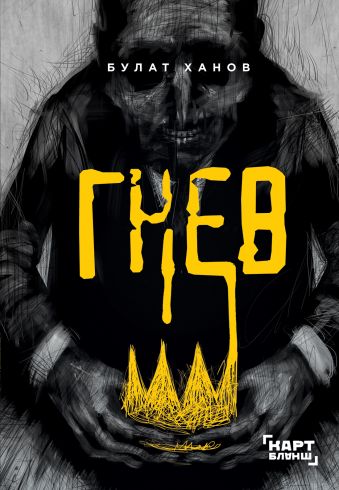
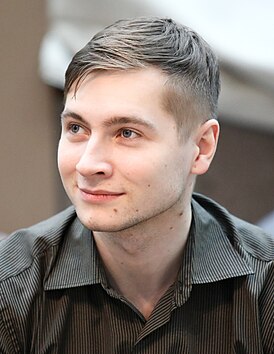
 lonely bike shed, to flipping a Waiting for Godot-esque story on its head when we discover (many pages in) that the protagonists are in fact broiler chickens on a meat farm, Pelevin has proved himself to be one of the most restless experimenters in literature today and a master of bending narrative forms. When Viktoria Malik, my co-translator, and I read his 2017 novel iPhuck 10, we knew that he had somehow managed to take things one step further. We were hooked, and felt we had to bring this bizarre and wonderful creation to a broader readership around the world.
lonely bike shed, to flipping a Waiting for Godot-esque story on its head when we discover (many pages in) that the protagonists are in fact broiler chickens on a meat farm, Pelevin has proved himself to be one of the most restless experimenters in literature today and a master of bending narrative forms. When Viktoria Malik, my co-translator, and I read his 2017 novel iPhuck 10, we knew that he had somehow managed to take things one step further. We were hooked, and felt we had to bring this bizarre and wonderful creation to a broader readership around the world.